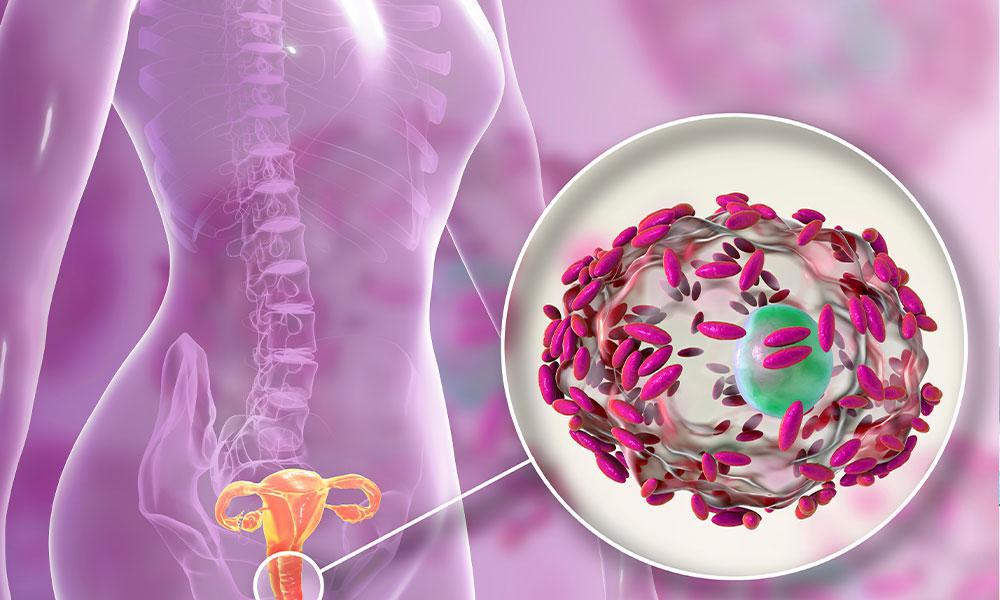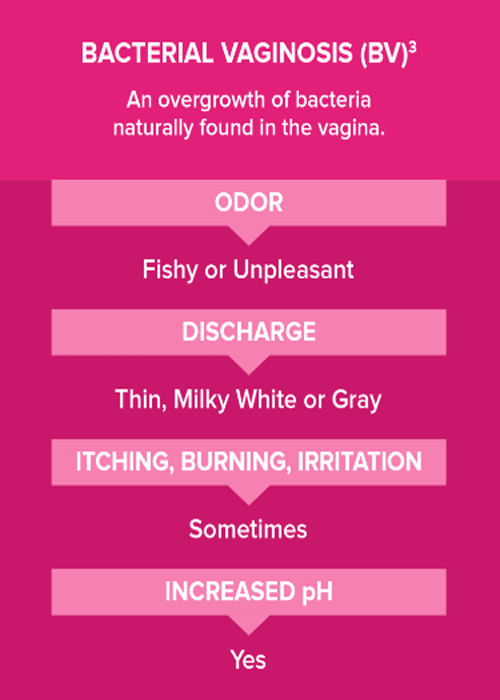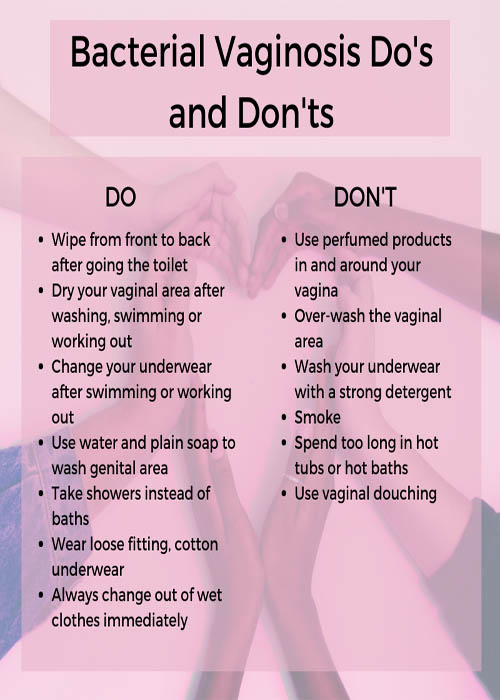Can Bacterial Vaginosis Go Away On Its Own : Complete Fact Sheet
Bacterial vaginosis is a very common infection of the vagina that happens because of the overgrowth of the natural bacteria resent in the vagina called the lactobacilli. When the balance has been breached, lactobacilli overgrows and disturbs the normal pH of the vagina and causes this infection as the normal pH is also maintained by the lactobacilli. On the other hand, if the lactobacilli reduce in number, then this would also make the vagina a harbor for other harmful bacteria that invade and cause the infection. Such organisms include Gardenella that most commonly causes this infection. It should be noted here that bacterial vaginosis is not a sexually transmitted disease, however, it has a strong correlation with sexually hyperactive women.
Who can get Bacterial Vaginosis?
There is no proven fact as to how a woman can acquire this infection. But the relation of increased sexual activity is related to it, nevertheless. A woman who is sexually active and has multiple sexual partners is more prone to get this infection, which means that women from 16 to 45 years of age are the most susceptible.
On the contrary, if a woman who never had sex during their life or is limited to one sexual partner seldom gets this infection, however, it is not known if Bacterial Vaginosis is a sexually transmitted disease.
Similarly, douching your vaginal region with scented soaps can alter the balance of your vagina. We need to understand that the vagina is a self-cleaning structure and it does not need cleaning.
Using an intrauterine device (IUD) is also connected to increased chances of acquiring bacterial vaginosis.
What are the symptoms of this infection?
Infection with bacterial vaginosis is usually not of severe intensity and is treated easily. The symptoms of the infection can be nasty and disturbing. You may experience:
- An obnoxious fishy odor, which gets stronger after having sex
- Burning sensation while urination
- Itching in your genital region
- Gray or whitish discharge
- An uncomfortable feeling
Top 11 Best Full Body Pregnancy Pillow Guide 2020 – Which One To Buy?
When to see a doctor?
Any sexually active woman should make regular visits to her doctor. There are many diseases which are sexually transmitted and it is crucial to diagnose these diseases before things get worse. But more importantly, if you see unusual symptoms in yourself then it becomes a must to visit your doctor. Let your doctor know if you have:
- Multiple sex partners
- Fever
- Unusual discharge from the vagina
- Itching in the vaginal region
- Foul smell
- Pain during intercourse
- Heavy menstrual bleed
- Inter-menstrual bleed
- Pain in the lower abdomen
Your doctor would want to perform examine you. This may include inserting an instrument in your vagina to allow to examine from the inside and also to take a sample from the discharge to find out if there is a growth of any organism.
A special test called the ‘whiff test’ may be performed on the sample taken from the vagina to be tested under the microscope. A drop of a chemical called potassium hydroxide is used to on the sample, a unique fishy-odor comes off the sample which is diagnostic of Bacterial Vaginosis. Plus, a low pH of 4.5 also indicates this infection.
Bacterial Vaginosis during pregnancy:
Bacterial vaginosis can be easily treated, but it does become problematic if it is acquired during pregnancy. This is especially concerning because pregnant women are at a higher risk of acquiring this infection because of the hormonal changes that occur during the pregnancy, even if they do not have sex during their pregnancy period. And an infection during pregnancy can mean something else for a woman, for example, the woman would be at a higher risk of going through preterm delivery and the baby would be at risk of being premature.
Also, if this infection spreads and ascends to the other structures of the reproductive tract, then it would lead to another serious infection called the Pelvic Inflammatory Disease (PID), and then this infection can reduce your chances of having successful pregnancies in the future.
Ovulation Bleeding-Why does ovulation bleeding occur?
How is this infection treated?
Some of Bacterial Vaginosis infection resolve on their own and go unnoticed. But if your symptoms that may concern you then it would best for you get a treatment from your doctor. It should be pointed out here that an infection is not an indication for douching or cleansing of the vagina. It should not be done on regular days, either. Douching can cause the harmful bacteria to ascend the reproductive tract making things worse for you, especially if the infection reaches the ovaries or the fallopian tubes.
The only definite treatment for bacterial vaginosis is antibiotics. No other remedy treats this infection as effectively. Your doctor will prescribe you antibiotics like metronidazole that can be taken orally or used as a cream. It is important to realize that completing the antibiotic course is very crucial in eliminating any bacterial disease. Your doctor would recommend you to the antibiotics for up to 5 to 7 days depending on the severity of the infection.
And you need to complete the course to its term, because if you stop taking the antibiotics thinking that you got cured within 3 or 4 days, then there are much higher chances that the infection would reoccur. Whereas, in cases where a woman gets recurrent infections from these bacteria, then you may be prescribed longer courses of antibiotics.
In other occasions where a woman gets infected repeatedly because of the IUD placed, then the doctor may ask you to get it removed and switch to other ways of contraception.
Complications of Bacterial Vaginosis:
Even though this infection can be treated there might be chances that it may become complicated. Some of these complications include:
- Reduce the chances of becoming pregnant
- Becoming more prone to sexually transmitted infections like Herpes, HV or gonorrhea
- Having a preterm delivery with a low birth baby
- Getting a Pelvic Inflammatory Disease
- Becoming more susceptible to getting infections after a surgery like a Hysterectomy.
Click To Learn More: Complications Of Placenta Previa During Pregnancy
Prevention from this infection:
This infection is easily preventable if you take the following measures:
- Stick to one sexual partner, who in turn has one sexual partner, too.
- Do not have frequent sex because even though this infection does not spread from person to another, it increases the chances of you getting this infection because of very frequent sex.
- Use barrier protection such as a condom to prevent you from getting this disease even you are already on some kind of contraceptive. Remember, taking contraceptive pills or having an IUD inserted only prevents you from getting pregnant and it does not prevent you from spreading or getting an STDs.
- Do not use scented soaps or bubble baths and steam to cleanse your vagina. Your vagina cleanses itself and does not require further douching. All you should do is to use simple soap and water to clean the genital region.
- Make sure you properly clean yourself after you use the bathroom.
- Do not use sex toys or if you do, clean them properly so it does not become a harbor for harmful bacteria.
- Get yourself screened at least every 6 months either you are sexually active or not and get your partner screened, as well. Every woman who is of childbearing age should have their annual gynecological screening tests done to prevent from any sort of reproductive tract disease.
Click To Learn More: What Is A Cryptic Pregnancy?
References:










4 Replies to “Can Bacterial Vaginosis Go Away On Its Own : Complete Fact Sheet”